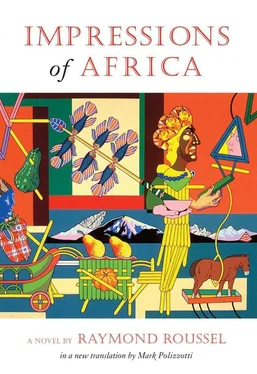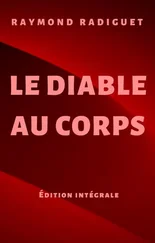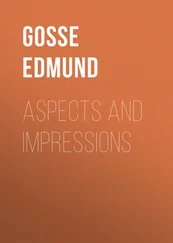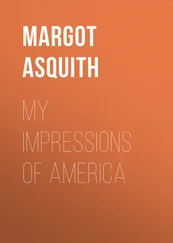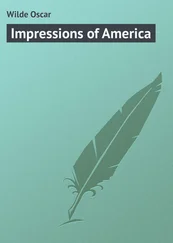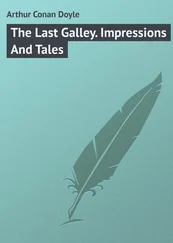Roussel died that night still seeking the “solace” of “a little posthumous recognition.” In the decades following, his work was embraced by successive generations of French and American avant-gardists, and he attained, if not the household-name status he so envied in the likes of Verne and Victor Hugo, at least a solid reputation as one of the twentieth century’s most original and influential littérateurs — a “writer’s writer,” to use the kiss-of-death phrase. Authors ranging from Edmond Rostand to André Gide, Alain Robbe-Grillet to John Ashbery, Italo Calvino to Georges Perec, Michel Foucault to Michel Leiris have dipped into the source he revealed; Dalí and Gia-cometti took visual cues from his works, while Duchamp acknowledged that Impressions of Africa “was fundamentally responsible” for the Large Glass . Yet, as Robbe-Grillet and others have pointed out, there remains an inexhaustible core of mystery in Roussel’s work, an opaqueness within its own transparency, that holds us at a spectator’s safe distance even as it keeps our gazes riveted, our minds constantly working at a puzzle we can barely conceive.
The Africa of these Impressions is not, to be sure, the Africa of geopolitical fact, but neither is it entirely a product of Roussel’s fancy. The late nineteenth and early twentieth centuries witnessed an acceleration of European colonialist expansion throughout the Dark Continent, and reports in the press and travelers’ tales, alongside the lurid imagery of popular adventure novels, helped foster the widespread Western notion of Africa as that alien place where weird practices, unspeakable horrors, and unheard-of flora and fauna lurked at every bend in the jungle path. The backdrop of Roussel’s Ponukele in fact contains many of the by-then-standard attributes available in most basic accounts from his day, including many cribbed from his beloved Verne; as with the boulevard plays he adored, there is a stagy, conventional quality to the descriptions and sentiments that betrays the author’s literary, rather than first-hand, experiences of the setting — and of life.
For all that, he manages to avoid many of his day’s most prevalent stereotypes about race. And while Impressions does contain such markers of casual bigotry as frequent use of the word “Negro” (which I’ve retained, as true to the time and spirit in which the novel was written), or a certain bemusement at the Africans’ demonstration of such “white” attributes as scientific curiosity, not to mention the requisite cannibals and human sacrifices, by and large both Ponukeleans and Europeans stand as fully fleshed characters, replete with the basic human virtues and failings — including a peculiarly Rousselian gung-ho adventurousness and willingness to oblige even the most extreme demands. As the original manuscripts tell us, this was both intentional and laboriously achieved: over various revisions, Roussel progressively smoothed out what was initially a much coarser and caricatured portrayal into something approaching a kind of verisimilitude. (In Louise Montalescot, moreover, he creates a much more independent, capable, and admirable female character than could be found in most “realist” fiction of the time.)
Roussel famously boasted that, although he had “traveled a great deal” (he listed “India, Australia, New Zealand, the Pacific archipelagos, China, Japan and America…Europe, Egypt and all of North Africa…Constantinople, Asia Minor, and Persia”), he “never took anything for [his] books” from these experiences. Rather than seeking to broaden the mind or discover new horizons, he often chose his destinations for their literary appeal: a trip to Tahiti, for instance, was determined by his admiration for the popular novelist Pierre Loti, who had set one of his best-known books there, while Baghdad was for him “the country of 1001 nights and Ali-Baba, which reminds me of [the operetta composer] Lecocq.” The writer Michel Leiris, whose father was Roussel’s financial adviser, later posited that “the outside world never broke through into the universe [Roussel] carried within him…In all the countries he visited, he saw only what he had put there in advance, elements which corresponded absolutely with that universe that was peculiar to him.” Though he had visited Egypt in 1906, and even kept a diary (“Went to see the Valley of the Kings — Cold lunch — sun — heat”), there is no indication that any of his observations, such as they were, found their way into the book he would soon undertake: like Phileas Fogg, he had little interest in the surrounding countryside or populations. Later in life he took to voyaging in a specially built caravan ( roulotte ), a kind of proto-RV with only a few curtained windows behind which Roussel wrote in peace while the foreign landscapes paraded by unheeded; photos of the vehicle suggest nothing so much as a huge hearse.
Pierre Janet, in his 1926 study De l’angoisse à l’extase , which contains detailed notes on his sessions with Roussel (alias “Martial”), noted his patient’s “very interesting conception of literary beauty. The work must contain nothing real, no observations on the world or the mind, nothing but completely imaginary combinations.” Reading Impressions of Africa , one sees how far the author has drifted from the trade routes of reality in his descriptions of such “native” phenomena as moles that secrete an irresistible adhesive drool, or underwater sponges that spin like pinwheels under duress, or a giant zither-playing earthworm, or huge plants that (unlike their author) absorb and then project rigorously faithful images of their surroundings. Not to mention sci-fi inventions like a mechanical orchestra that runs on hot and cold fluids, grapes that contain entire miniature tableaux within their flesh, or metals so magnetic they could pull something halfway around the world. (As with any such inventions, what was once far-fetched eventually becomes commonplace: the automated loom to which Roussel lovingly devotes pages of explanation has been industry standard for some time; Louise Montalescot’s “great experiment” sounds remarkably like the modern laser printer; and the battery-operated portable fan that Bex invents for young Fogar can now be bought for pocket change at the local hardware store. One wonders what Roussel would have made of such contemporary gewgaws as the iPad and streaming video.)
But the true originality of Impressions of Africa , as of most of Roussel’s major works, lies not in its attempts to out-Verne Verne, but in an invention that its author kept scrupulously hidden from sight. For in virtually every case, the episodes, conceits, and details from which Roussel fashions his characters and their actions were determined not by authorial whimsy but by a highly regulated process in which language itself is the sole motor and guide. The genesis of Impressions of Africa lies in a short story written some ten years before, “Among the Blacks,” in which the opening and closing sentences are virtually identical. Only one letter has changed in the passage from first to last, but on that small variant hangs the entire tale. As Roussel explained it:
I chose two almost identical words…For example, billard [billiard table] and pillard [plunderer]. To these I added similar words capable of two different meanings, thus obtaining two almost identical phrases…
1. Les lettres du blanc sur les bandes du vieux billard …[The white letters on the cushions of the old billiard table]
2. Les lettres du blanc sur les bandes du vieux pillard… [The white man’s letters on the hordes of the old plunderer]
In the first, “lettres” was taken in the sense of lettering, “blanc” in the sense of a cube of chalk, and “bandes” as in cushions.
Читать дальше
